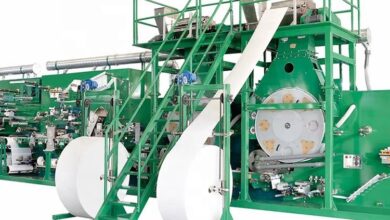How Accessible Are Solar Solutions in Pakistan for Residential Use?
In recent years, the spotlight has shifted towards renewable energy sources worldwide, and Pakistan is no exception. With growing concerns about environmental sustainability and energy security, many individuals and businesses are considering solar solutions as a viable alternative. But just how accessible are these solar solutions in Pakistan for both residential and commercial purposes? Let’s delve into the details to find out.
Understanding the Landscape of Solar Solutions in Pakistan
Before diving into accessibility, it’s essential to grasp the current state of solar solutions in Pakistan. The country boasts abundant sunlight throughout the year, making it an ideal candidate for harnessing solar energy. Additionally, the government has initiated various programs and incentives to promote solar energy adoption across different sectors.
Residential Accessibility: Making Solar Power a Reality for Homes
For residential properties in Pakistan, accessing solar solutions has become increasingly feasible in recent years. One of the primary reasons for this accessibility is the availability of numerous solar energy companies offering installation services at competitive prices. Homeowners have the option to choose from a range of solar panels, inverters, and battery storage systems tailored to their specific needs and budget.
Commercial Viability: Empowering Businesses with Solar Energy
In the realm of commercial enterprises, the adoption of solar solutions is not only about sustainability but also about economic viability. Many businesses in Pakistan are recognizing the long-term benefits of investing in solar power systems. From reducing electricity bills to demonstrating corporate social responsibility, solar solutions offer a plethora of advantages for commercial establishments across various industries.
Government Incentives and Policies: Driving Solar Adoption
To further enhance accessibility, the Pakistani government has implemented several incentives and policies to encourage the adoption of solar solutions. These initiatives include net metering programs, tax rebates, and subsidies for solar equipment installation. Such measures aim to alleviate financial barriers and promote widespread adoption of solar energy among both residential and commercial consumers.
Overcoming Challenges: Addressing Barriers to Accessibility
Despite the progress made in promoting solar solutions, certain challenges persist in ensuring widespread accessibility across Pakistan. One significant hurdle is the upfront cost associated with installing solar power systems, which may deter some consumers, especially those from low-income households or small businesses. Additionally, issues related to grid connectivity and infrastructure reliability need to be addressed to optimize the efficiency and reliability of solar energy systems.
The Role of Technology Advancements: Enhancing Accessibility and Affordability
Advancements in solar technology have played a pivotal role in enhancing the accessibility and affordability of solar solutions in Pakistan. Innovations such as more efficient solar panels, smart inverters, and energy storage solutions have made solar power systems more reliable and cost-effective than ever before. Additionally, the availability of flexible financing options and lease agreements has made it easier for consumers to adopt solar energy without a significant upfront investment.
Educating and Empowering Consumers: Fostering Awareness and Understanding
One of the keys to improving accessibility lies in educating consumers about the benefits and intricacies of solar solutions. By raising awareness about the long-term savings, environmental impact, and technological advancements in solar energy, individuals and businesses can make informed decisions regarding adoption. Moreover, providing access to reliable information and resources can empower consumers to navigate the process of transitioning to solar power seamlessly.
Collaborative Efforts: Partnerships for a Sustainable Future
Achieving widespread accessibility of solar solutions in Pakistan requires collaborative efforts from various stakeholders, including government agencies, private sector entities, and civil society organizations. By fostering partnerships and collaboration, innovative solutions can be developed to overcome existing barriers and accelerate the adoption of solar energy on a larger scale. Initiatives such as community solar projects and public-private partnerships can play a significant role in expanding access to solar solutions in underserved areas.
Looking Ahead: The Path to a Solar-Powered Future
As we look to the future, the accessibility of solar solutions in Pakistan holds immense potential to transform the country’s energy landscape. With continued technological advancements, supportive government policies, and increasing public awareness, solar energy is poised to play a central role in powering homes, businesses, and industries across Pakistan. By embracing solar solutions, we can pave the way towards a more sustainable and energy-independent future for generations to come.



